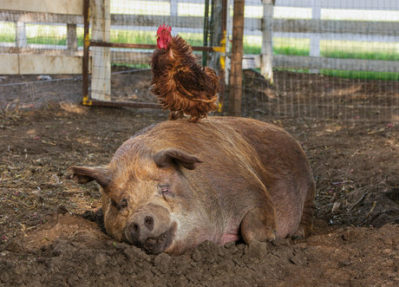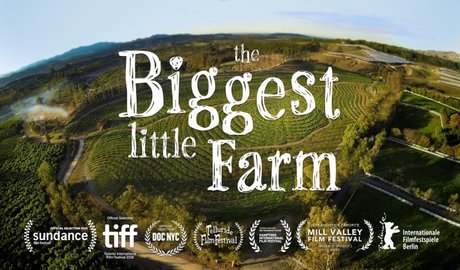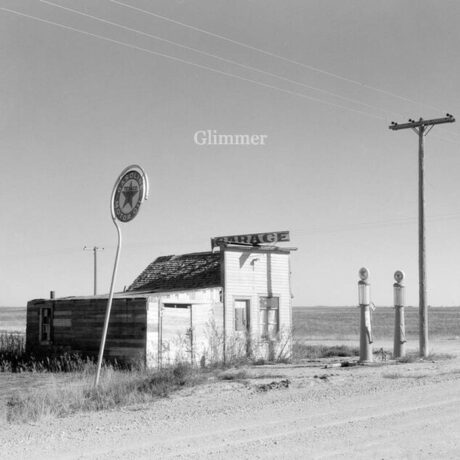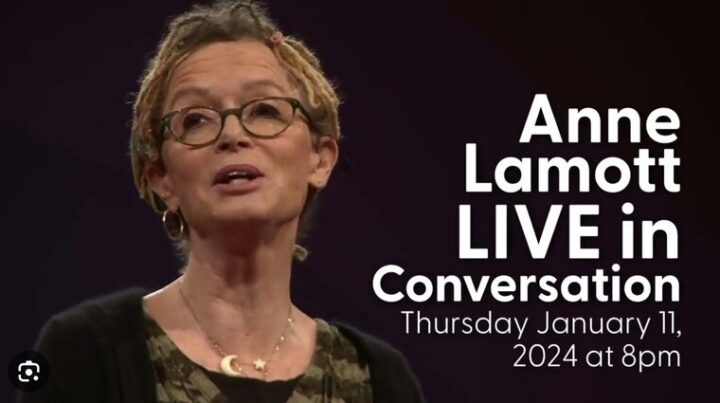See The Biggest Little Farm In The Nicest Theater Possible!

With a quality of cinematography usually reserved for nature films set in exotic places like Africa or Borneo, and a richness of story more often found in scripted drama than documentaries, The Biggest Little Farm is a remarkable piece of film-making that deserves all of the accolades it is receiving. It manages to deliver a powerful message without a wit of preaching, lobbing an epic dose of both scientific and personal redemption into a story about barnyard animals, fruits, vegetables, and poop. It’s stunning, enchanting, winsome, emotional, exciting, and, for those with ears to hear, deeply theological.
There’s certainly nothing new about traditional farming. Aspects of this story remind me of Bill Guerrant and his White Flint Farm that I talked about in my book four years ago. I have also gotten to see the beauty and benefits of the Trevecca Urban Farm, as Jason Adkins and his team bring many of these principles and practices right onto the campus where I work. (It was awesome to see Jason brought up to share a bit at a screening of this film in Nashville.) One of the central tenets of the film, and the philosophy behind the traditional farming movement, is that progress – as it relates to farming, nature, health, and maybe even society in general, may have more to do with laying off the technological gas pedal and looking backwards for wisdom and guidance. So it’s not that the people behind The Biggest Little Farm invented anything at all – nor do they claim to. What is unique, though, is that in this one couple we have not only found people who are willing to do the hard and risky work of moving against the technological flow in search of a better way to grow things, but we also have a cameraman of exceptional skill, and a team with a keen eye and heart for redemptive storytelling. It’s this trifecta that makes The Biggest Little Farm so powerful.
John and Molly Chester were doing pretty well in their respective careers; he as an award-winning cameraman for nature films and documentaries and she as a high-end private chef, when they set all that aside to buy 200 acres of dried up, spent, farm land an hour outside of Los Angeles. Even if you suspect that they’ll ultimately be successful in their endeavors, threats of wildfires are introduced at the very beginning of the story and add real existential threat to the proceedings. Every time the Chesters experience some kind of breakthrough, there is a new challenge waiting on the other side. And all along we wonder, even if they are successful, against all odds, in bringing their little slice of Eden back from the dead, can it survive when it is surrounded on all sides by dried up ground?
It is amazing to see exactly how the dead land comes back to life. This is a story not so much about solving a problem with technology or know-how, but stepping back and allowing creation to do its thing. It’s a story of grace and humility. There is work to be done, but the healing comes when people stop trying to control and manage things with such a heavy hand. It’s a story of patience and faith.
There are many powerful subtexts throughout this gorgeous and generous film. An exiled rooster and an enormous sow provide a humorous lesson in coexistence. The way the land under Apricot Lane Farms responds to both drought and flood in quick succession, is poignant, but we don’t get a lecture about it. Instead we get a couple minutes of incredible footage and are trusted to deduce the meaning ourselves. From the wings of a honeybee, to the sleepy eyelids of a piglet, to the inherent drama of predator, prey, and the emotionally conflicted farmer wanting to do the right thing, this film knows which details to show in vivid, slow-motion detail, and which ones to allow our imaginations to cover. It’s masterful.
That it treats something as bucolic as an American farm as worthy of this kind of meditation is precious indeed. The beauty here is vivid and unavoidable, and the line drawn between the land and human flourishing could not be clearer. As I watched the Chesters, and their team of co-workers, literally tend their garden I couldn’t help but think of the calling we all have to tend the garden we were placed in – to bring order to chaos and water to dry places. Though there is nary a Scripture quoted or a cliché cited, this story vividly captures both the curse and the calling of mankind. Films like this stand as towering examples that art can scream Biblical truth in beautiful ways without once resorting to codes, assurances, references, or insider-speak.
Artists, songwriters, creative, and people who eat food… get to this movie before it leaves theaters. It opens in New York and Los Angeles on May 10 and everywhere else on May 17th.





